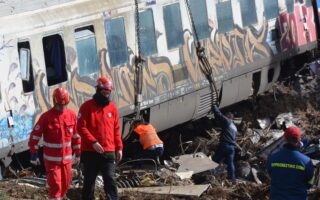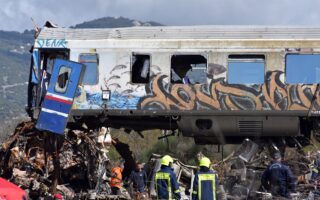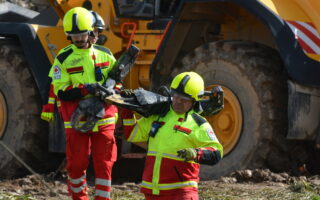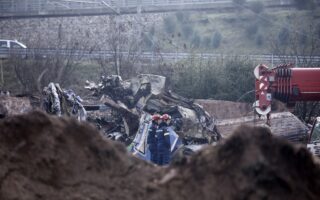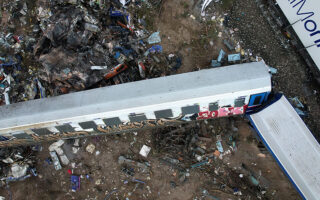Neglect led to deadly train collision
Blame focuses on delays in modernizing infrastructure, maintenance failure, agency infighting
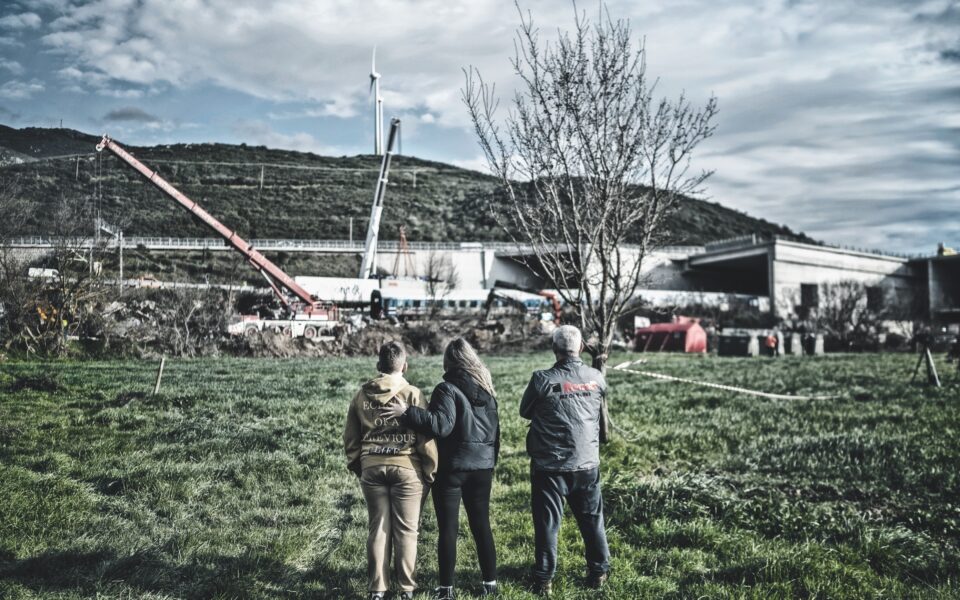
Last Tuesday’s railway crash in central Greece, the country’s deadliest ever, was caused by the actions of an inexperienced station master. But those actions were made highly probable by decades of neglect and mismanagement for which all successive governments, including the present one, are responsible.
Signalling only operates in certain sections of the main rail line from Athens to Thessaloniki, forcing station masters to communicate with each other and train drivers via two-way radio. In the section where a passenger train and a freight train ran on the same track for over 15 minutes before colliding, the signalling system malfunctioned six years ago and was never repaired, Panayotis Paraskevopoulos, a retired former head of the railroad employees’ union, told Kathimerini.
The Hellenic Railways Organization (OSE), both before and after its split into several companies, is a case study of a bottomless pit burning state money and European Union subsidies: in the late 1990s, the then socialist government canceled its debt; by 2010, it had grown back to €10 billion, or more than 4% of Greece’s gross domestic product, leading Poul Thomsen, the Danish economist who represented the International Monetary Fund, one of Greece’s creditors, in negotiations with the Greek government over emergency aid in 2010, to say “Shut it down!” to shocked Greek officials. The IMF kept insisting on the shutdown, but was opposed by another creditor, the European Commission, which felt it had spent too much on OSE.
The creditors kept pressuring Greece to uncouple train operations from network maintenance and sell the operator: this finally happened in 2017, but things have not been going smoothly. When a representative from Hellenic Train, the Italian-controlled operator, showed up last Wednesday at a meeting chaired by Prime Minister Kyriakos Mitsotakis, he enraged government officials by responding that he didn’t know the exact number of passengers in the train involved in the crash.
At least €170 million have been invested in modernizing sections of the network that either barely function (such as in western Thessaly and western Macedonia) or were shut down, like the meter gauge railway in the Peloponnese. In the latter case, rolling stock, left unattended in depots, has been vandalized by gangs that cut the metal to sell for scrap.

